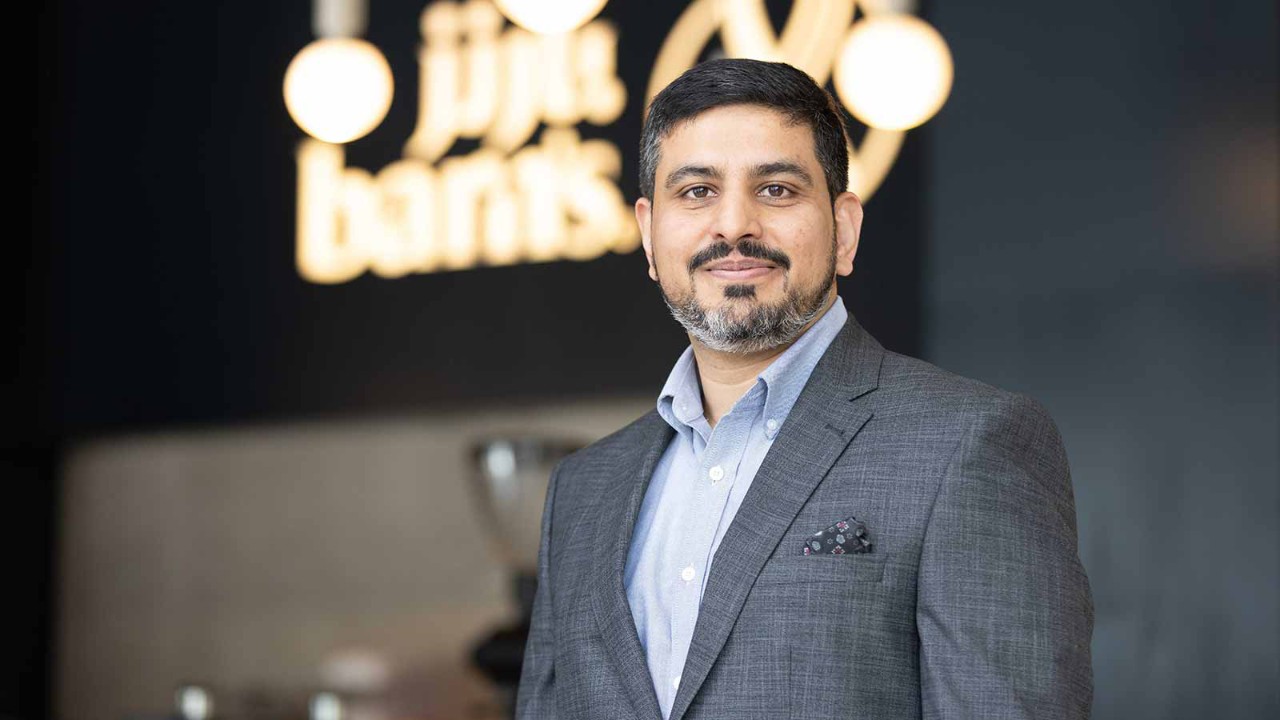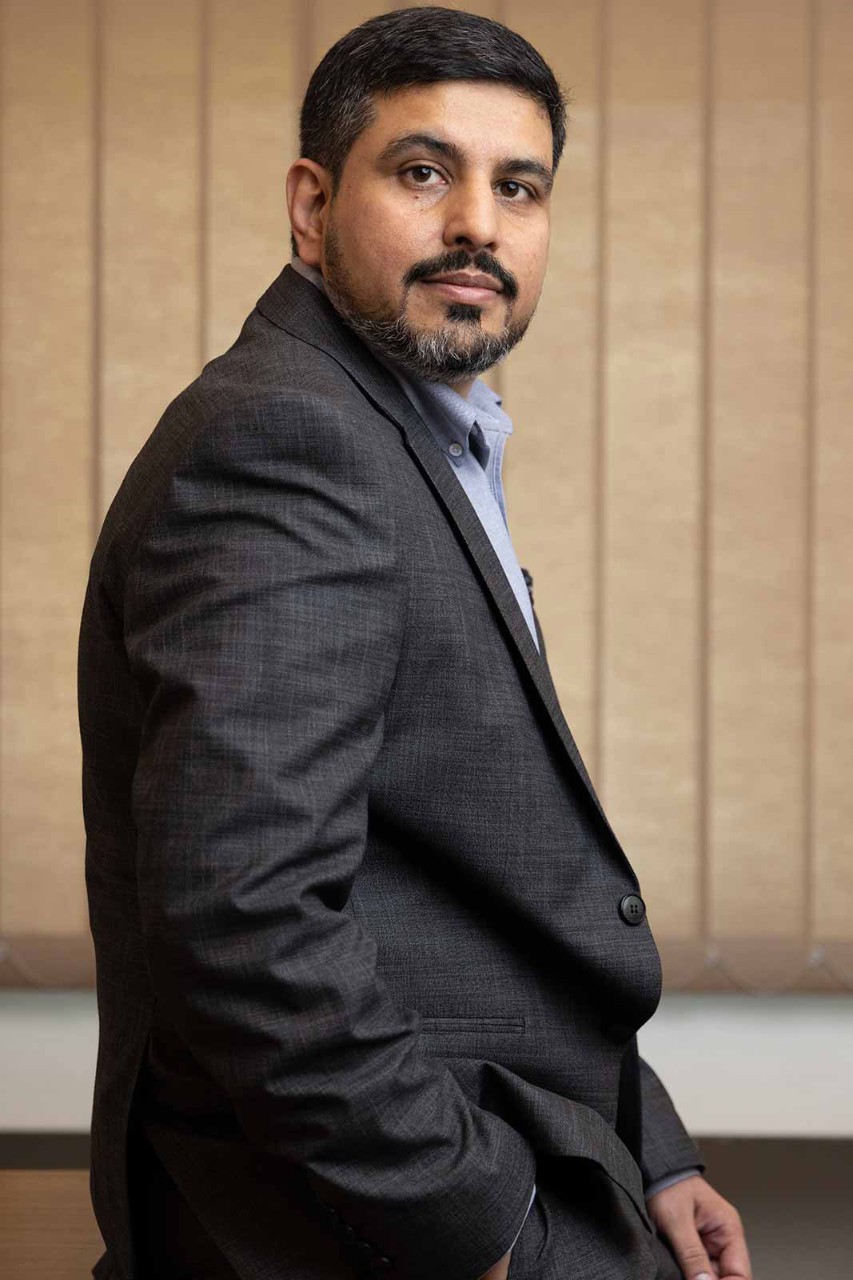
Coffee is big business in Saudi Arabia. According to World Coffee Portal data, the kingdom’s branded coffee outlets grew by 18.5% last year, making Saudi Arabia the largest market in the Middle East, with 40% of the region’s coffee stores.
It’s not hard to see why. As Middle Eastern economies seek to diversify away from oil, services that support Saudi Arabia’s booming consumer activity and its position as a key Gulf tourist destination are likely to thrive.
Given the significance of coffee drinking across the Middle East and North Africa and its role in hospitality in Saudi Arabia, it is no surprise that domestic and international brands are locked into this growth sector and jockeying for position. And leading the domestic field is Barn’s Coffee, with some 500 outlets in the country.
‘It has always amazed me how a small bean can really wake you up in the morning’
CV
2021
CFO, Barn’s Coffee, Jeddah, Saudi Arabia
2019
Finance manager, National Foodstuff Manufacturing Co (Unifood), Jeddah
2017
Internal controls and reporting manager, Carrier Air Conditioning, Jeddah
2013
Internal audit manager, Otis Elevator Co, Jeddah
2007
Assistant manager, EY, Riyadh
Wake-up call
Steering the finance operation at the kingdom’s third biggest coffee producer and retailer (behind only US chains Starbucks and Dunkin’) is Muddasir Farooq FCCA, who joined the company as finance chief in 2021. A coffee lover himself, Farooq’s interest was piqued by an invitation to interview at the company. ‘I was interested in the industry,’ he says. ‘It has always amazed me how a small bean can really wake you up in the morning.’
Barn’s Coffee, which is a producer as well as a retailer, is the sole activity of parent company Al Amjaad, which was founded in 1992. Al Amjaad has three processing plants, where green beans imported from South America, South-East Asia and Africa are roasted, ground and blended. A total of 150 company-operated outlets – drive-through kiosks, branches in shopping malls and the Barns X premium outlets – are concentrated in the western region in Jeddah, Makkah and Taif. Another 350 franchised branches populate other regions in the country. The company achieved turnover of US$130m in 2022, up 13% on the previous year.
Quality provider
Initially set up as something of a hobby business, Barn’s Coffee has flourished and stringently guards its reputation as a quality provider. Any moves to change suppliers are supervised closely by the chairman, Samir Dahlan, who carries out his own testing to ensure that quality and taste remain to his liking.
In fact, when coffee bean prices rose last year, board members discussed sourcing alternative but lower quality beans, a suggestion that was quickly shut down by the chairman, who declared he would sooner take a hit to profits than compromise on taste. ‘This is something that I believe is the main ingredient in the success of Barn’s,’ says Farooq. ‘The owners are willing to go the extra mile to ensure that the quality they’re giving to their customers is the quality that they themselves want.’
Today, the brand has domestic and international expansion in its sights and Farooq is working alongside the chief executive and board of directors to facilitate these developments. The plan is to grow the core business by 20 branches a year and the franchise business by 100 branches a year to a total of around 1,000 by 2028. Processing and warehousing will expand to support this growth.
‘We need people who can produce analysis that can be used by different departments’

Basics
1992
Year Barn’s Coffee was established by Al Amjaad
500
Number of branches
120
Number of branch openings planned per annum
US$130m
Turnover in 2022
1,000+
Number of employees
Mission to modernise
Alongside all this expansion, Farooq has been on a mission to modernise the finance function. When he arrived, the accounts department was focused mainly around data entry and the production of accounts. Farooq’s ambition was to transform it into a business partner for the wider operation, establishing forecasting and budgeting capabilities along with in-house tax and treasury functions.
Transitioning the team from data entry to accounting roles has been a challenging undertaking. In the interests of eliminating manual work, accounting processes are being automated and the existing 15-strong team is being trained and upskilled. Farooq says he is also looking at artificial intelligence.
As he arrived, an ERP implementation was already under way. ‘With the implementation we did not see much requirement for data-entry clerks,’ he says. ‘But we do need people who can be analysts, who can produce analysis that can be used by different departments to assist them in their day-to-day activities.’
Thanks to Farooq’s reforms, today the finance function provides financial reports along with analysis, financial modelling and commentary to support business decisions. ‘Beforehand, data was collated and given to the CEO, who would then hold discussions with the different departments,’ he says. ‘Now, instead of giving data to board directors, we make sure we have discussions with the departments. We incorporate their feedback, model different scenarios and provide those to the relevant people to help them make decisions.’
Different skillset
To date, the enhanced analytical capabilities have made supply chain management and ordering more efficient. And Farooq wants to ensure that the finance department is able to meet the requirements of an expanding enterprise by, for instance, reviewing plant and manufacturing capacity. ‘We are planning to expand into three countries in the coming year,’ he says. ‘Once you grow internationally, your challenges increase. You have different types of risk assessment to take care of and that will require a different skillset.’
With a loyal following, Barn’s expansion plans appear solidly backed and certainly its local standing is secure. ‘There has been a huge boom in the sector,’ Farooq says. ‘The number of coffee shops opened in the last two years is equal to the number that had opened over the 10 years prior to that, and yet we are sustaining our sales and growing. So the loyalty is there.’



